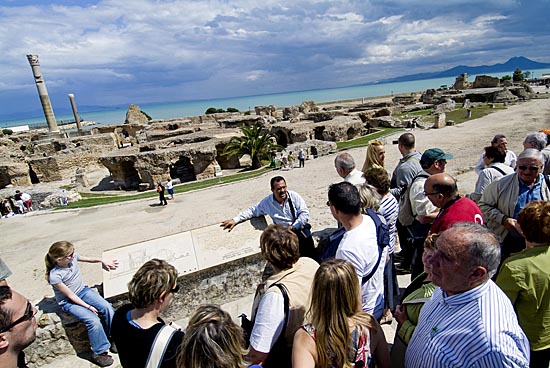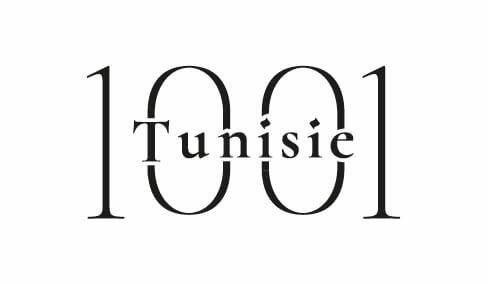
Are these images false? Do they really reflect our reality or apprehension? Is it true that Tunisian society, deeply affected by a brutal impoverishment and by a questioning of its societal model, is it becoming a country of extremism?
As much as it is indisputable that the country is facing a difficult democratic transition but from there to assert that the country is no more than ruins and that it only offers signs of “devastation”, this is greatly exaggerated or completely fantasized … On the contrary, Tunisia exists and resists.
But what do tourists perceive when they arrive in Tunisia? European tourists traveling to Tunisia for the first time are always pleasantly surprised. Apart from the overflowing garbage cans, they are received in a state-of-the-art terminal such as Enfidha where buses and 4×4 travel agencies await them to drive them by air-conditioned cars to their hotels. They will come out little or not.
The service in the majority of hotels will always be the same, that is, fairly mediocre, with rare exceptions. But a lot of those who chose Tunisia as a holiday destination this summer did so for the price and not by choice. Elodie F., confirms well: “It was Hammamet or no holiday at all! The choice was quickly made. The sun and the sea are the main assets of the destination and I needed nothing but an all inclusive hotel. ”
In a recent poll, the newspaper “Le Monde” received hundreds of testimonies to measure the impact of revolutions on tourism in Egypt or Tunisia. One of the most significant testimonies will mention “women veiled in the same swimming pool …” and “cohabitation with Libyans who do not necessarily behave the same as Europeans …”. That is all !
Apart from that, the complaints are always the same: dilapidated environment, invasive “beznessas”, unpleasant mood of unprofessional staff, … Finally, the routine of a destination that keeps falling in terms of quality of services, Lagging behind in terms of innovation and cultivating a “cheap” image without succeeding in getting out of the straitjacket in which it has locked itself up. And even the revolution did not lead to any questioning or global national debate on the question of tourism. It has to be done !
On the side of the regulars of the destination and Tunisians residing abroad, it is a whole other matter! Although they are no longer astounded by the increase in the number of veiled women or by the recent religiosity displayed by Tunisians, they often experience new forms of violence that take place in cities such as verbal violence , Aggressions, robberies, spitting, gratuitous disputes, insubordination vis-à-vis the forces of order …
A new routine faced with law enforcement agencies who make beautiful quads on the beaches but do not put a heart to the work to stop the criminals. The last assault of Bettino Craxi’s daughter-in-law was the chronicle and the assault of a French MP in Bizerte earned him flat presidential and government apologies.
To come back to the impact of the images of religious fanatics on the assault on the place of January 14 and the information relayed by the media and relating to the too numerous attacks on the human rights and the freedoms of the artists or the journalists Do they have a direct impact on Tunisia?
Not necessarily. The target of the clients of the destination can look at the French JT but not necessarily every night. It must also be said that in the face of the efforts made by the Tunisian hoteliers to keep up with the doldrums that were on the horizon, it is difficult to resist. Tunisia had unprecedented prices! It has saved the season of the main French tour operators according to the recent communiqué of the CETO which is pleased. Tunisian tourism has of course spent a lot of money to save the season but for what profitability?
Basically, the destination continues to spend money and would almost come to pay for some of those coming! The fall in selling prices is therefore increasingly expensive and it will take colossal sums of money and precious time to return to the prices prevailing before our revolution.
The latest statistics of Tunisian tourism are presented as a trophy. It is obvious that we should welcome the return of tourists but that does not prevent above all to ask the right questions: what is the return on investment by market? What is the profitability of the sector?
Tourism revenues from January 1 to August 20, 2012 improved by 35.3% compared to the same period in 2011, but fell by 14.9% compared with the first eight months of the year. 2010, according to figures released recently by the Ministry of Tourism. Since the beginning of the year, until 20 August 2012, Tunisia has welcomed almost 3.7 million tourists while it received 4.6 million tourists in 2010.
The destination seems to be comparatively good, while the crisis is raging in Europe and neighboring Algeria remains suspicious. The figures are indeed well above the best forecasts in a very difficult economic situation. Does this mean that Tunisian tourism is doing well and is doing well? Nothing is also on! Tunisia has sold off the destination, in order to attract the French clientele in the aftermath of the revolution. The two Governments that succeeded one another in the aftermath of the revolution had a strong presence in this market, although other markets were more reactive.
The current government fails to overshadow the precarious situation in the sector and still does not push for the long-awaited reforms. Statements on the tourism strategy for a more prosperous future have been made without convincing industry professionals. Will these reforms come about? Only time will tell. For the time being, Tunisia declares to want to continue to rely on tourism to develop the country. This also time will demonstrate.
Amel Djait
{mainvote}

 َAbonnez-vous
َAbonnez-vous

